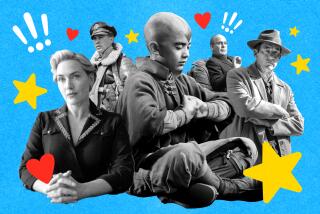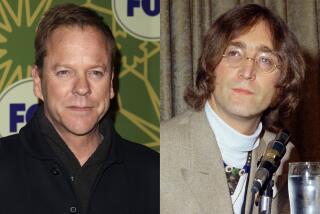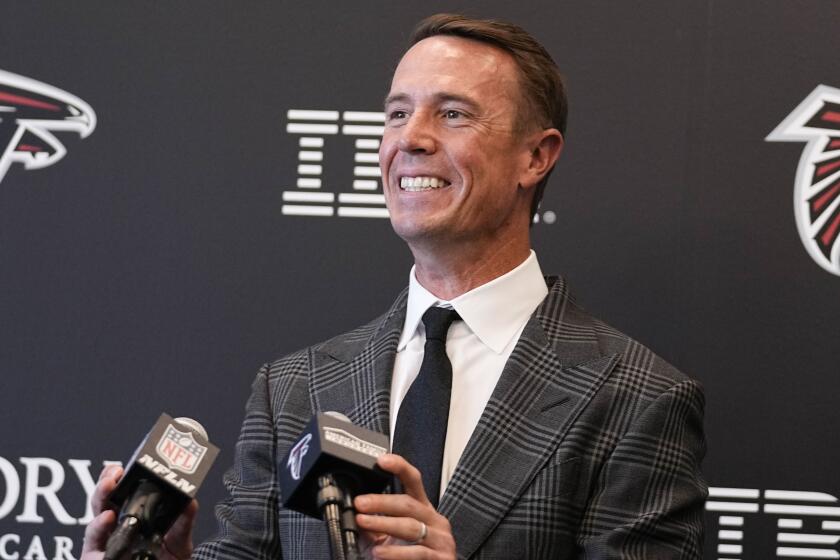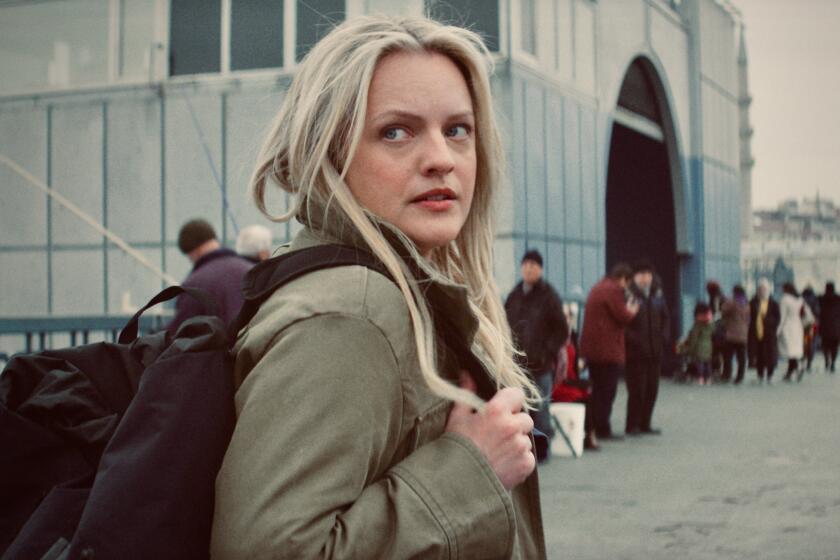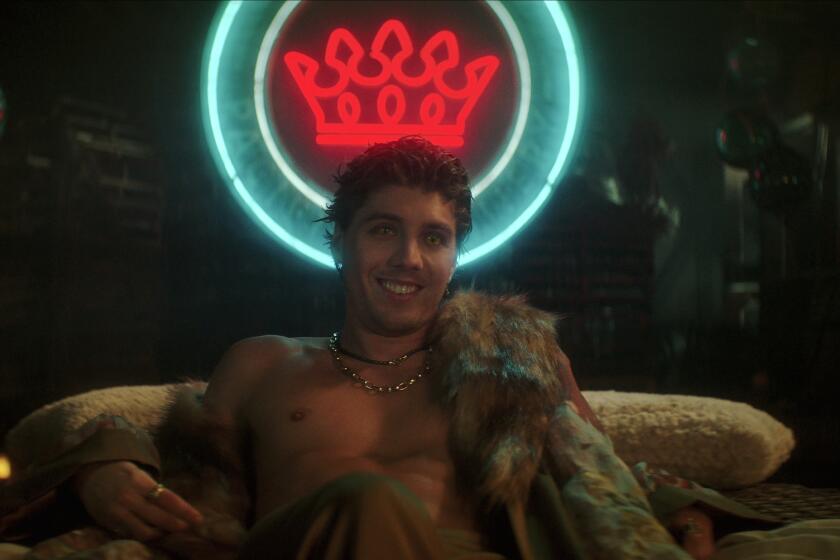“Touch” gets to Kiefer Sutherland
Kiefer Sutherland runs through a packed Grand Central Station, dodging bystanders and scanning the crowd for suspicious activity. The minutes fly by — seen in frequent close-ups of ticking clocks — drawing closer to a potentially explosive moment. Sutherland confronts a guy on a public phone, spins him around and starts punching.
Wait, is Jack Bauer back on TV?
He’s not, but Sutherland is returning to the Fox network. Only his new drama, “Touch,” owes more to feature films like “Crash” and “Short Cuts” than to his previous award-winning espionage series, “24.” He just happens, in the first episode of “Touch,” to be racing against time to unravel a mystery, an unintentional bone for “24” fans since it was written before Sutherland signed on.
The new drama, which will have a sneak preview Jan. 25 after “American Idol,” centers on Sutherland’s character, Martin Bohm, a former journalist and single dad to a special-needs 11-year-old boy.
The son, Jake, who’s remote, combative and uncommunicative, may be autistic, but he exhibits savant-like qualities with gadgets and numbers. He can’t bear to be touched, hence the series’ title.
As it turns out, as revealed by an eccentric professor, played by series costar Danny Glover, Jake can detect patterns and relationships between seemingly disparate people and events. He might even be able to see the future.
It’s up to Sutherland’s Bohm to “follow the bread crumbs” and figure out the significance of the boy’s mathematical clues, according to “Touch” creator and executive producer Tim Kring.
Kring, who also created NBC’s former hit “Heroes,” said he’d been thinking since shortly after the Sept. 11 attacks about writing a series that would blend some mystical and scientific elements. (There are several references to 9/11 in the pilot, including the reason Sutherland’s character is a widower: His stockbroker wife died in the World Trade Center blast.)
At the core of “Touch” is a father and son tale, and layered on top are ideas of interconnectivity and serendipity, near misses and close calls, those moments of wondering, “If it hadn’t been for this, what would’ve happened to that?”
“I’ve been dealing with this theme for a long time, in ‘Heroes’ and before that, ‘Crossing Jordan,’ of people’s lives being connected in seemingly random ways that turn out not to be random at all,” Kring said. “I wanted to elevate that theme to the forefront because I think people will automatically be able to relate to it.”
The 13-episode series, formally premiering March 19 after “House,” will tell stand-alone stories each week but weave an ongoing mythology for fans who want a deeper dive. One of the main story lines is Bohm’s struggle to prove he’s a competent father since Jake’s outbursts and out-of-control behavior caused the state’s child welfare agency to take him out of the home for evaluation.
Though it’s grounded in real-world New York City, there will be borderline supernatural issues to ponder, Kring said, such as the possible existence of others just like Jake. And there will be some heart-pounding action for “24” junkies, but it’ll be mixed with lower-adrenaline emotional stakes.
Bohm will be “a very real, very human character,” who’s devoted to his kid and stretched too thin, like many parents. Bohm, along with the actor who plays him, “has his own kind of heroism and strength,” Kring said.
To Sutherland, who had been working in live theater, going back to a full-time TV series wasn’t his priority. He didn’t miss the demands of a weekly show, especially one like “24” where he appeared in nearly every scene, he said, but he was bowled over by the “Touch” script.
“I knew I had to do it because it hit me on a spiritual level,” Sutherland said recently. “As it turns out, the workload is almost the same as ’24.’ ‘Touch’ isn’t as physical but the emotional demands are much greater.”
Though the show’s based in Los Angeles and the production never leaves town, the show globe trots to carry the theme of diverse and interlocking connections. A misplaced cellphone in one country, for instance, skips around the world, eventually containing data and video evidence of where it’s been and the people who’ve used it.
“That idea of connectivity, of breaking down the barriers of language, culture, religion, and showing that we all want the same things — it’s imperative right now,” Sutherland said. “It’s something we may’ve lost track of, but the show reminds us.”
More to Read
The complete guide to home viewing
Get Screen Gab for everything about the TV shows and streaming movies everyone’s talking about.
You may occasionally receive promotional content from the Los Angeles Times.

